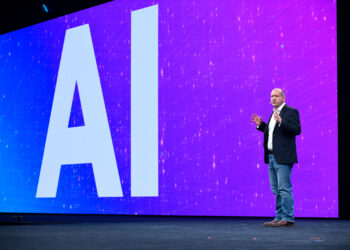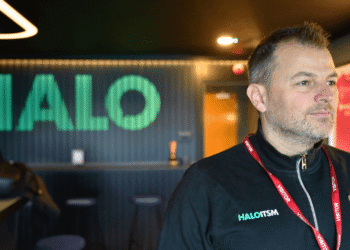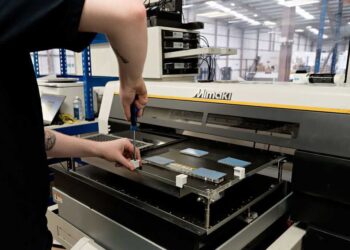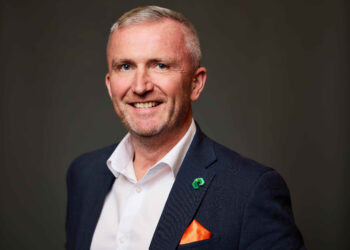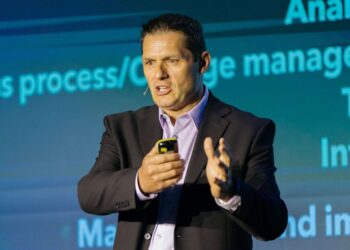TD Synnex’s “muscular” move towards net zero is a “good call out” to the rest of the industry, its UK&I MD Dave Watts has asserted.
The world’s largest distributor last week gained approval for its science-based decarbonisation targets.
Long-term, the $58bn-revenue, US-headquartered giant has committed to slashing its Scope 1, 2 and 3 emissions by 90% by 2045.
In the near-term, TD Synnex has committed to reducing its Scope 1 and 2 emissions by 42% by 2030. Regarding Scope 3, by 2028, the distributor has committed that 90% of its suppliers by spend and 58% of its customers by revenue will have science-based targets in place.

Talking to IT Channel Oxygen, Watts said gaining approval from the Science Based Targets initiative (SBTi) “is important for a few reasons”.
“We think it’s really important that we support the SBTi way of measuring emissions from a science-based perspective. We viewed it as the gold standard of all the measurements out there, and it’s very, very hard to get,” he said.
“A hard old piece of work”
Computacenter CEO Mike Norris last month told IT Channel Oxygen that he had set a new 1:1 device recovery goal because its net zero goal is “a bit too nebulas”.
Although Computacenter last summer brought forward its net zero goal from 2050 to 2040, reaching net zero on Scope 3 is “a way away, and you and I might not be doing this by then”, Norris said.
Watts, however, described 2045 as a “reasonable timeframe bearing in mind the scale of the work”.
“The long-term commitment is really all about those partnerships and how we can work with each other and apply pressure on each other. That’s a hard old piece of work which the manufacturers and supply chain are right at the beginning of,” he said.
“We would aim to beat that, but that’s why that longer-term target is so far out.”
Flying the flag
It is important that TD Synnex is one of the first global disties out of the gate on gaining SBTi approval (Westcon-Comstor being a noteable exception), Watts said.
“We’re the number-one distributor in the world, so it’s a good call out to everyone that we’ve moved so muscularly in this way,” he said.
“A lot of vendors – certainly a lot of our customers – need a lot of support getting their heads around what they can do themselves, and what we can do together. So for us to be leading the charge in those conversations is really important.
“We say that with humility – we’ve got so much work to do ourselves. But to be flying the flag in the way we are is important.”
Doug Woodburn is editor of IT Channel Oxygen






